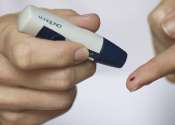Magnolia bark compound could someday help treat drug-resistant epilepsy
In patients with epilepsy, normal neurological activity becomes disrupted, causing debilitating seizures. Now, researchers report in ACS Chemical Neuroscience that they have found a potential new treatment for this disorder ...
Mar 11, 2020
0
3








